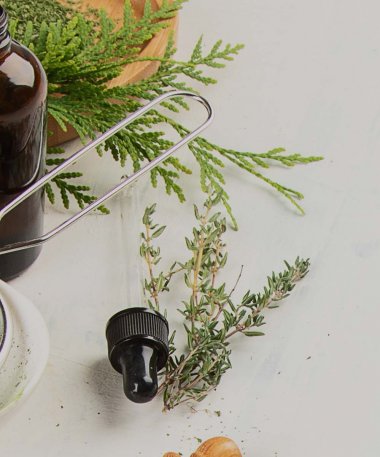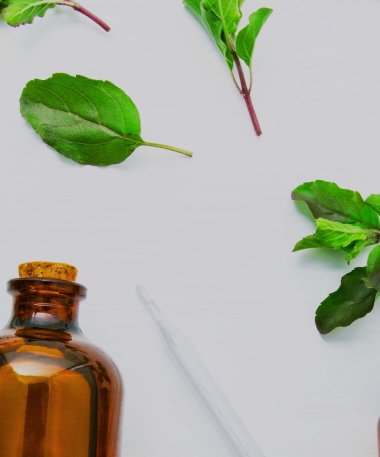In the last few months we have witnessed some extraordinary changes in our culture and collective health. Many folks are feeling their “fight or flight” (sympathetic) mode is in overdrive and are not finding the opportunity to switch back to “relaxation and repair” (parasympathetic). Without the opportunity to relax, the body doesn’t have time for maintenance. Inflammation, poor mood, decreased metabolism, weakened digestion, and a fatigued immune system can be the result.
Eliciting the relaxation response and bringing the nervous system out of overdrive can help with mood, panic attacks, and insomnia. Dialing the “flight or fight” down a notch can be hard when the world is feeling overwhelming and looming with uncertainty. Lifestyle changes such as mediating, warm baths, yoga, and breathing exercises are tremendous opportunities to help decrease sympathetic tone in the body. Herbal medicines can also play a role in supporting our nervous system, and plant chemistry can be wonderfully calming and uplifting.
Tinctures and capsules of herbs can be easy and convenient herbal medicines but tea is a simple way to get herbs into everyone! A warm cup of tea can make you feel calm and centred and is a great way to introduce herbs into your daily life. Having a daily ritual of making and sipping a cup of tea is simple step in nourishing yourself. Adding nervine herbs into that cup can help regulate the nervous system and give multiple other benefits from the plant world.
Calming and yet not sedating, this tea blend is wonderful for helping to soothe the nervous system while allowing you to get stuff done! Oat straw (Avena sativa) is the whole oat plant and is highly nutritive, containing minerals such as iron, calcium, magnesium, and B vitamins. Traditionally used for people who feel out of sorts and tired all the time, oat straw has a oat/hay-like flavour and can be very mild in a tea. Lemon balm (Melissa officinalis) is a wonderful sunny flavoured herb that grows like a weed, literally, in the Okanagan soil. A warm lemony flavour, lemon balm can also help to calm digestion, anxiety, and hyperactivity and also has antiviral effects against the herpes virus. Chamomile (Matricaria chamomilla) is a well known herbal plant for calming the nerves and soothing teething babies! One of my favourite spring plants, nettles (Urtica dioica) earn their name from tiny hairs that cause a stinging sensation upon skin contact. Dried or cooked, they lose their sting and can be extremely nutritive. One cup of nettle leaf tea offers 500 mg of bone-building calcium and other nutrients like magnesium, potassium, and silica. Nettles can be a diuretic and dehydrating if taken in large amounts.
These wonderful nervine herbs have been used traditionally for centuries and have a lovely ability to help calm an anxious mind and provide nutrients to promote better health. Herbal medicine can be inexpensive, simple to use, easy to access, and made at home. Choose herbs from a well-known health food store or herbal shop when making your own blends and always check with your naturopathic or conventional physician about using herbs with any medications or health conditions. Enjoy the spring flavours of these fresh teas and continue to nourish yourself with nervines in these next few months.
Take care of yourselves and your loved ones.
Dr. Shelby Entner, nd is a licensed Naturopathic Physician and the owner and founder of Vero Health Naturopathic Medicine in the Okanagan. She earned her doctoral degree in Naturopathic Medicine in 2002 after ten years of studies. Dr. Shelby empowers patients to make changes that are in alignment with their health values and goals and seeks to find answers by looking at the whole picture, instead of simply at a symptom.



